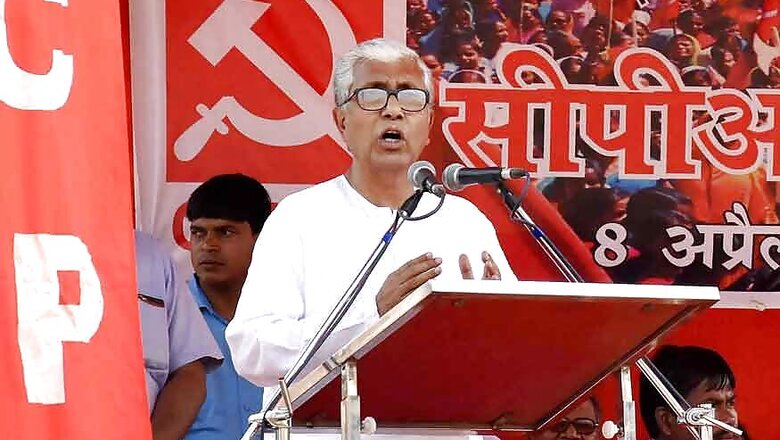
views
New Delhi: There comes a phase in the life of every mass leader, when the values, ideals and the causes that they hold close to their chest are not in sync with their followers anymore. That is when change becomes inevitable and the masses look around for the most attractive alternative to dislodge the leader.
For Manik Sarkar and Tripura, that moment has come. It has been a 20-year-long journey as the Chief Minister. When he was first sworn-in, the new millennium had not begun, incoming calls on mobile phones were charged at Rs 16 per minute, India was not a nuclear state and Tripura was covered under the draconian Armed Forces (Special Powers) Act,1958 (AFSPA).
AFSPA was enforced in Tripura in February, 1997 when the militancy was at its peak. Two separatist groups, National Liberation Front of Tripura and All Tripura Tiger Force wanted Tripura to secede from India. Their demand was to throw all Bengali-speaking people, who immigrated to the state after 1956, out of Tripura, their lands taken up and distributed among the indigenous people. These groups were getting training and shelter in Bangladesh. The fact that the state had an 856-km border with Bangladesh made matters worse.
The demographics of the state had by then changed to a majority of 70% people being Bengali, with the rest being tribals. Thus, the demand of the electorate then was peace, security and stability. And this is where Manik Sarkar delivered.
Contrary to popular notion, Tripura has not been re-electing Sarkar for his frugal lifestyle, but for his iron-fisted efforts to end militancy in the state. While the rest of the north eastern states continue to be haunted by militancy, Tripura has managed to transform from the most-disturbed state to a peaceful state under Sarkar.
In May 2015, the Manik Sarkar government was successful in removing AFSPA from the state.
The second front was that of education and food security. While the standard of government schools improved, Tripura also continued to top the list in the best implementation of the national rural job guarantee scheme. This worked well for him. The fact that he too was a man of frugal means added to the charm. He used to donate his salary to the CPM and even his strongest opponent has not been able to accuse him of corruption.
But times change. With stability in pocket, youth wanted development, jobs and private sector opportunities. The ‘poorest CM of India’, who still does not prefer to use a smart phone, failed to read the ambition of his people today. Or probably, he was still trapped in the inertia of the 20 years.
The situation is almost akin to what happened in Bihar in 2005. Lalu Prasad, for all his corruption taint, gave voice to the oppressed and suppressed communities of Bihar. But when the same subaltern used the same voice to demand food and development, he was found wanting. Thus arrived Nitish Kumar, the 'Vikas Purush' of Bihar.
In Tripura, this is exactly the sentiment the Bharatiya Janata Party capitalised on. It ran one of the flashiest campaigns. Money was pumped in and opulence of the machinery lured the aspirational Tripura to its fold.
It isn't that the Left Front government did not notice this. At every public meeting, Manik Sarkar would harp about how he would “rather invest money in fixing the irrigation problem than print flashy campaign material like the BJP”. But after 20 years, if the irrigation problem is still not fixed, then the blame would come back to the Chief Minister and not the BJP.
Bored of the socialist way of life, people now demanded a higher standard of living. Tripura has hardly any industry. After higher education, most youngsters have to either leave the state looking for better opportunities or look out for possible government job. Even those working in the government sector were getting salaries as per the 4th Pay Commission while the central government has already moved to 7th Pay Commission.
In 2016, Agartala became the country's third international internet gateway after the ones in Mumbai and Chennai. But the government in the state was not even prepared to capitalise on this windfall. There are no IT parks or corridors to speak of the in the state and private investments are minimal.
Trapped in the Cold War era ideology, Sarkar missed the digital bus.
Probably in his refusal to use a smartphone, he lost connect with the 'WhatsApp' generation. Now, his rule has been brought to an end by a party which made 'WhatsApp' communication their focal point of political messaging.













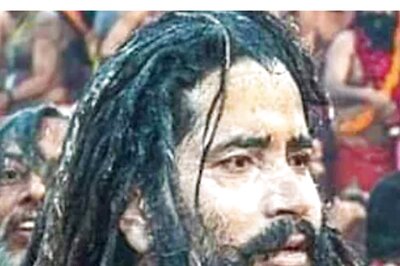

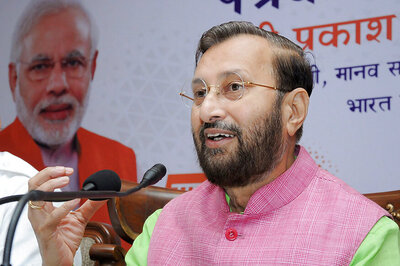
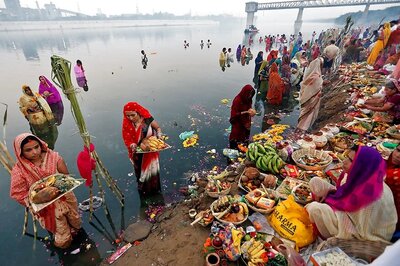
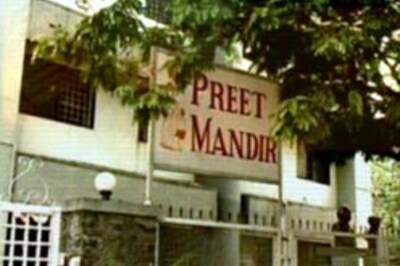

Comments
0 comment